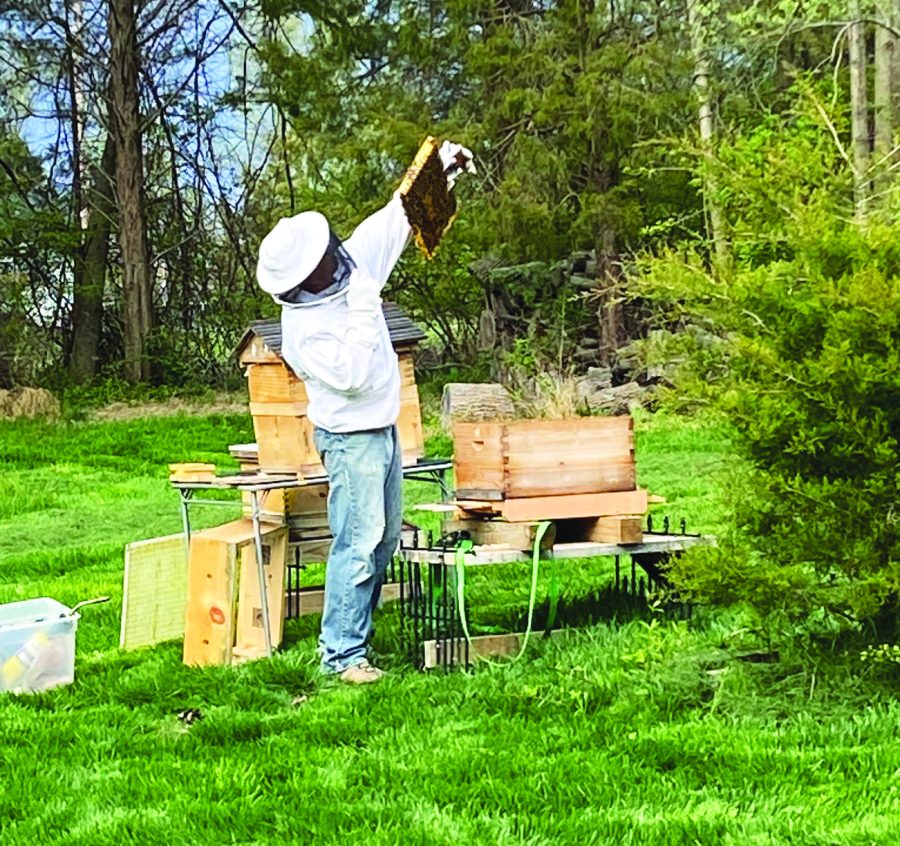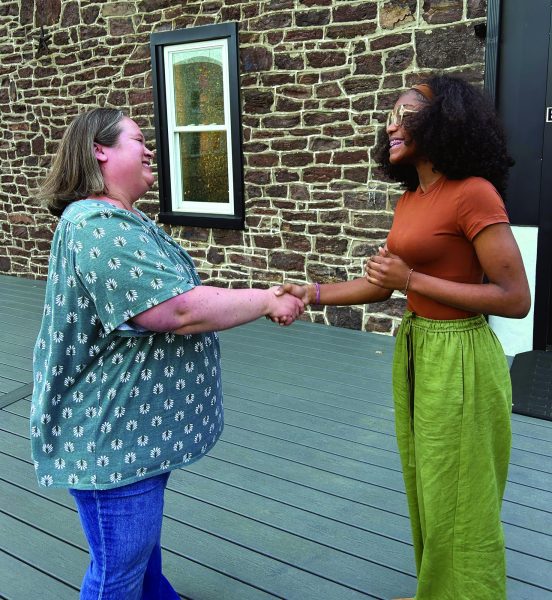Beekeeping more important than one can ‘bee-lieve’
Both natural and man-made threats pose a great danger to bees as a species. Beekeeping offers a solution to this issue as well as a better, safer life for multiple species of bees.
Photo reprinted with permission from Matt Haines
Golden honey…Inspecting frames, assistant principal and beekeeper Matt Haines performs a routine hive management in his backyard. Haines conducts hive management nearly every day after work.
By providing safe habitats for bees, beekeeping has proven to be a viable solution for the preservation of bees around the world from both man-made and natural-born killers.
While perhaps not the first thing people think of when considering a new hobby, beekeeping hides a lot more under the surface than one might expect, as it is largely regarded in the science community as a solution to bee extinction.
“I often tell people that are interested in bees that literally the reason that there are beekeepers is because everything is out to kill the bees,” assistant principal and certified beekeeper Matt Haines said.
As the years have progressed, bees have seen a drastic decline in their population across the globe.
According to Haines, this is due in no small part to modern-day tools used in farming and other agricultural activities.
“Modern-day agriculture is not favorable to beekeeping,” Haines said.
According to science teacher John Dubyk, chemicals such as pesticides as well as herbicides are to blame.
“If [pesticides] reach the bees, it can kill them,” Dubyk said.
Haines, instead, credits a large amount of deaths to the “varroa mite,” a parasitic tick-like creature that latches itself onto a bee as to “hitch a ride” to the hive where it depletes their food as well as their blood.
“You could have an entire colony of 40-50,000 bees and within three weeks they could all be dead,” Haines said.
According to science teacher Ian Burley, another more prominent action killing the bees is habitat destruction.
“[When we mow] our lawns, if there’s milkweed around we’ll cut it down,” Burley said.
Burley said that building backyard habitats, as well as indulging in beekeeping, can aid in the reconstruction of the species.
However, he had a few words of caution.
“It takes a lot of knowledge, it takes a lot of guts and it takes a lot of time,” Burley said.
Haines proved Burley’s words to be correct as he not only took night classes at the Montgomery County Beekeeper’s Association, but also participated in a college course offered by Penn State University.
“There’s a ton of background information that you have to have going into it,” Haines said.
Nonetheless, beekeeping pays off, according to Dubyk creating safe environments for bees allows them to properly reproduce and positively impact wildlife.
“When the bee population increases, plant biodiversity increases, as well as the production of fruits, vegetables, seeds and waxes,” Dubyk said.
According to Burley, bees are the world’s leading pollinators, at any extinction level event could be “cataclysmic.”






